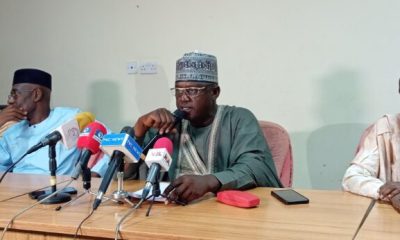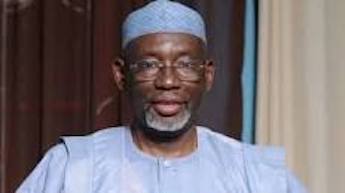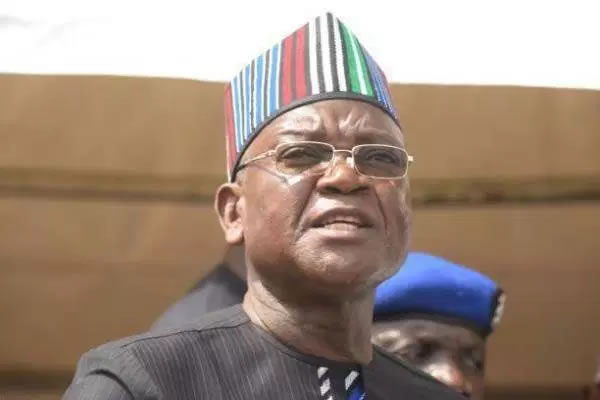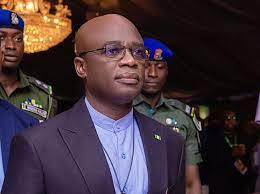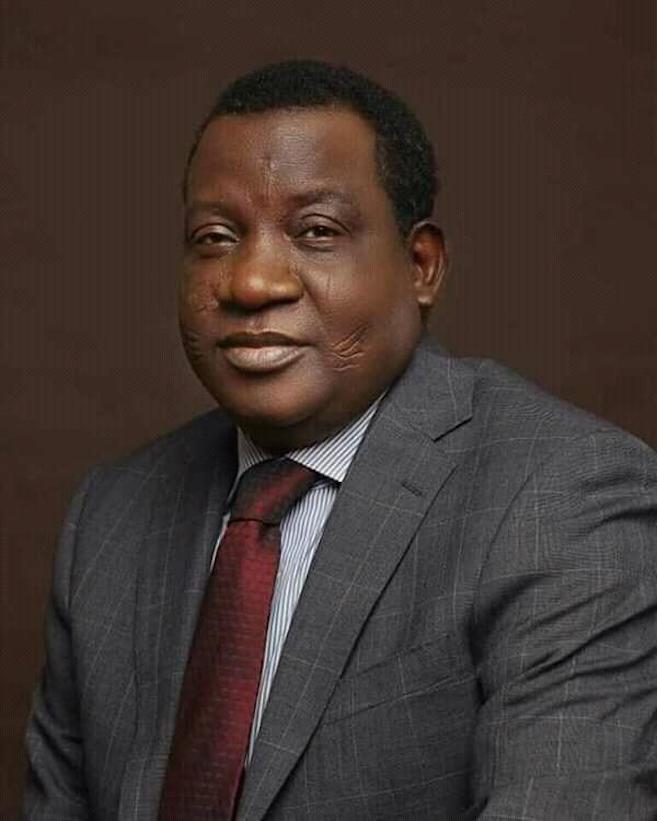OPINION
Ortom’s Performance and Public Opinion
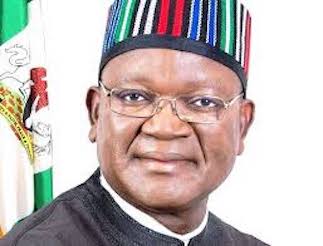
By Jerome-Mario Utomi
The United State Supreme Court is not the highest in our land. Our highest court is the court of public opinion which meets every hour- Seltel (1987)
“The public welfare demands that constitutional cases must be decided according to the terms of the Constitution itself, and not according to judges’ views of fairness, reasonableness, or justice.
I have no fear of constitutional amendments properly adopted, but I do fear the rewriting of the Constitution by judges under the guise of interpretation.
”
—Hugo L. Black
Democracy taken objectively signifies the right to choose. Public opinion/communication on its part matters in every democratic setting. In fact, there exists this global belief that the viability of democracy depends upon the openness, reliability, appropriateness, and two-way nature of the communication environment.
However, despite these virtues and attributes of public opinion particularly in a democratic dispensation, there exists also a superior/school of thought that counters such claims.
It says; even in a democracy, the government is at liberty to take or discard advice and public opinion in the interest of greater good for the greater number. Public opinion, in its view, does not always provide clear-cut policy guidance, and even when it is clearly in favour of a certain course of government action, the authorities may decide otherwise-particularly when they realize how uninformed, superficial, and changeable most opinions really are.
Government it added may also reject the people’s opinion as a result of its own convictions, the recommendations of the public service, or the pressure of advocacy groups. Whenever the government fails to follow a clear-cut preference among the public opinion, they may actually be relying on a deeper understanding of the issue, the greater information at their disposal, a more sophisticated analysis of its implications, a concern for minority groups’ rights, or a less prejudicial attitude. it concluded.
Despite the validity of the above declaration, I believed and still believe in the efficacy and validity of public opinion particularly to people in government, for without it, there exist no other way the government will be abreast of what the people are wanting and doing.
However, if there is any exception in recent time that deeply demonstrate how uninformed, superficial, and changeable some opinion paddlers could be when exercising this right conferred on them by the instrumentality of democracy and election of leaders, and significantly explains why some opinions from the people needs to be ignored, it is the slanted x-ray/assessment of the performance of Mr. Samuel Ortom, the Executive Governor of Benue state by some commentators and self styled public affairs analysts.
Peripherally, their opinion pieces sighted in online news platforms and opinion pages of conventional newspapers appear so smooth that anybody who read their accounts would think that the picture they painted was real and the trickle down effect was already taking place on the people of the state.
Before getting down to the nitty gritty of their claims, it will be pertinent to look deeply, and classify their analysis/concerns into three parts.
For many in this group, Ortom’s constructive debate with the government at the centre on how best to lead and build a nation is viewed as unnecessary, messy and divisive; his differing political ideas and strategies are perceived as destructive to the nation’s interest. So, they are of the view that Mr. Governor needs to defocus on his persistent and unabating call on the government at the centre to provide security and adhere to the rule of law.
Others believe that since the interest of Benue is well represented at the centre via appointments of some of its sons/daughter into positions of authority, such appointment/magnanimity signposts Mr. President’s love for the state. Therefore, by interpretation, what The President deserves from the Government in the state, are namely; praise, respect-and not vilification or disparagement. To the rest, Governor Ortom, should let the Federal Government be; he should concentrate and get preoccupied with issues that have to do with payment of Benue state workers salaries and infrastructural deployment in the state. They predicted their claim on the allegation that workers in the state are owed salaries while the state as a whole suffers infrastructural deficiencies.
At this point, it is of considerable significance to state that this piece is neither out to submit Governor Ortom’s scorecard to the general public, nor to launder the efforts/ image of his administration. But, like a boil that can never be cured as long as it is covered up, the piece is aimed at opening with all its pus-flowing ugliness, the boils of inaccuracies, injustices, asymmetrical information/disinformation, innuendos against the Governor, democracy and good governance, to the natural medicine of truth, justice and the light of human conscience and the air of national and natural opinion.
For one thing, the issues raised- particularly the concern that has to do with nonpayment of workers’ salaries/pension and infrastructural deficiency could have been condemned in strongest terms if they were found to be true because a Latin dictum observes that; “Salus populi suprema lex esto [the welfare of the people shall be the supreme law].” But sadly, this cannot be as the orchestrated allegations have since been uncovered to exist only in frames. In fact, factually supported counter commentaries eminently suggest that the Governor ceaselessly performs his leadership role in this direction at the most fundamental level.
With the above highlighted, let’s focus on other ills that plagued such claims and arguments.
Beginning with inordinate appreciation of infrastructure and political appointment over Governor Ortom’s call for security and rule of law, the question may be asked; which is most essential; security of lives and property or provision of infrastructure and political appointment? Still on the argument about choice of salaries/infrastructure over security, it reveals a mindset with thoughtless understanding of leadership as a mere payment of salaries on the one hand, and ‘cement and concrete arrangement’ on the other hands. Broadly speaking, their deformed logic again elicits the question; when did provision of infrastructure/payment of salaries become a stronger key Performance indicator (KPI) for measuring leadership success than provision of security of lives and property?
While an answer(s) to the above question is awaited, it will not in any way be characterized as hasty to conclude that these misguided priorities demonstrated by Ortom’s critics, explain why Nigerians presently applaud and vote those who ordinarily, should have nothing to do with governance.
Specifically, Governor Ortom in my views may not be a saint but his type/kind in Nigeria’s leadership corridor is in short supply. Take as an illustration, at the wake of incessant clashes and killings of Benue people by those suspected to be Fulani herders; he enacted the anti open grazing law in the state to tame the situation. Yet the killing spray continued, houses destroyed and burnt down. In the face of these ugly developments, such killers were never apprehended, even when they make self implicating statements about such killings.
Instead of criticism, one would have expected, as responsible and responsive indigenes of the state, these critics of the Governor to dissipate such energy interrogating; why the legislative framework is not providing a strong source of remedy/solution for individuals and communities? And most importantly, why is it not effective and enforceable?
Asking these questions no doubt would have again exposed those who control security architectures in the country as well as underscore the expediency of state police to meet the nation’s security changing needs currently demanded by Ortom and other development-minded Governors and true Federalism proponents. Such a probe would have at the very least revealed who is failing in its responsibility as a leader; whether Federal or state?
Away from security concerns to the claim that appointment of some sons/daughter of Benue origin to positions of authority at the centre signposts love for the state. This argument again is not only laughable but cannot hold water when faced with embarrassing facts. It sadly speaks volume of a people that are ready to offer the security of their people on the altar of political appointments while pointing to why democracy in the country is downgraded to the level that it neither underwrites social justice nor guarantees social mobility.
Let’s look at the particulars of this claim.
Beginning with reality, if the likes of Ortom are to keep quiet from offering their sentiment on a matter such as security which involves the most serious and alarming consequences, it means reason is of no use to us; the freedom of speech may be taken away, and dumb and silent we may be led, like sheep to the slaughter.Regardless of what others may say, there is no way Ortom, a onetime business man and entrepreneur, could not call on Mr. President to rise up to his responsibility of securing the nation, as he (Ortom) understands that the efficiency of the government particularly in the areas of security and economy, does not affect the performance of the public sector alone. Rather, it affects that of the whole country, including the private sector (Business). When the public sector’s achievements pick up speed, the increased pace extends to the activities. ‘What investors are more particular about is the rule of law and the independence of the judiciary because unlike security where they can take care of the protection of their staff and assets, they cannot appoint their own Judges to sit on any litigations they are involved in’.
To therefore catalyze nation building, it is in my views that instead of advocating for unhealthy truces, ‘technical rationalities/ rationality without morality, or generating spurious arguments on why the Governors should cease commenting on state of the nation, it will be more rewarding if true lovers of this nation remembers that getting the people to believe or committed to a leader at the centre depends largely on the credibility and track-records of such leader, their vision/content of their message, reputation and the consistency between their words and deeds. Governance they say is not about the originality of vision but how well the vision serves the interest of the people. It is no longer a secret that the vision of the present administration at the centre has not served the people well.
As the debate rages, well meaning Nigerians are in agreement that separate from being a national leader that is well respected by all, Ortom is among the few public office holders that have played politics in the country using global rules and dictates. He is in the opinion of this piece exposed to the present attack not because there is an established link with non performance, but primarily because, the accusers feel that he occupies a public office and therefore, lacks the right to private living.
Utomi, is the Programme Coordinator (Media and Public Policy), Social and Economic Justice Advocacy (SEJA), Lagos.
OPINION
In the Matter of GTBank’s Persecution of Poor Bloggers

By Chidi Anselm Odinkalu
By the time Muhammadu Buhari ran for a second presidential term in 2019, it seemed clear that the judicial process in many parts of the country had been actively co-opted in the intimidation of civic opponents of the government, both real and imagined. The case of Steven Kefas was a defining moment in that process.
Steven was a compelling activist and amplifier of the crisis of human security in Southern Kaduna under former governor, Nasir el-Rufai.
For this, el-Rufai arranged his abduction from his residence in Rivers State on 8 May 2019. From there they bundled Steven into interminable detention in Kaduna, on the imagined crime of criminally defaming Cafra Caino, an acolyte of the governor who was also chair of the Kajuru Local Government Council.For this invented crime, el-Rufai had Steven charged before a Magistrate in Kaduna, who refused him bail even when the crime was clearly a misdemeanour. Steven renewed his application for bail before the Federal High Court in Kaduna where the presiding judge, Peter Mallong, incredulously ruled that his suit was “an abuse of court process” because the Magistrate had previously refused bail. Turning judicial precedent on its head, Peter Mallong held that the decision of the Magistrate was binding on the Federal High Court.
Gloria Ballason, who argued Steven’s case, was also my lawyer when el-Rufai sought to abduct me too in circumstances that would have been not dissimilar to what he did to Steven. On the eve of the presidential election in 2019, el-Rufai went public with claims of the massacre of scores of Fulanis in Kajuru, a community against which he appeared to have an implacable beef. The following morning, I publicly rebutted his claims. The security services were pointedly unable to support his claims.
After the 2019 elections, el-Rufai instructed my prosecution before the Magistrates Court in Kaduna on the fanciful charges of incitement and injurious falsehood. The case did not even have a charge number. The magistrate called up the case on two successive occasions and, when I did not show up, decided the time was ripe to issue a warrant for my abduction. Contrary to my entitlements under the Nigerian constitution, they did not even bother to bring the charges to my attention. It seemed as if the entire objective from the beginning was to set me up for abduction.
Informed off-record about the case by sympathetic law enforcement agents subsequently, Gloria Ballason first issued filings objecting to how the court had chosen to proceed. Thereafter, she instituted proceedings before Peter Mallong’s Federal High Court in Kaduna against el-Rufai and the police, arising out of these facts, alleging the breach of my constitutional rights.
One year after the case was instituted, in October 2020, Peter Mallong issued his decision. He claimed that the affidavit in support of my court processes, sworn to by a litigation clerk in the law firm of my lawyers, was incompetent because the deponent was someone other than me. It was as if he had never heard of the Fundamental Rights (Enforcement Procedure) Rules, which allowed for what the litigation clerk did. As a result, Peter Mallong said my case was incompetent and his court lacked jurisdiction over it. After holding that he lacked jurisdiction, however, Peter Mallong went on to “dismiss” my case.
The judgment was manifestly crooked on the face of the record. A judge can only dismiss a case that s/he has had the opportunity to consider but a judge cannot consider a case over which s/he lacks jurisdiction. So, a judge who rules that he or she lacks jurisdiction cannot thereafter decide to dismiss the same case. That is exactly what Peter Mallong did. Having accomplished such crookedness, he then went on to award punitive costs against me.
It was this kind of casuistic and crooked jurisprudence that emboldened el-Rufai and his ilk to routinise the persecution of Nigerian citizens by abduction under the cover of law. I was lucky. Steven Kefas was not. Gloria Ballason’s tenacity and an international campaign eventually enabled to Steven to make bail after 162 days in pre-trial detention in Kaduna prison.
According to Steven, while he suffered prolonged pre-trial detention for an imaginary crime framed against him for being a critic of government, he witnessed kidnappers caught in the act being released without charges. Steven’s explanation is that: “What the oppressive elites do in Nigeria is that they will hire rogue lawyers to help them draft all manner of petitions to get critics and ‘enemies of the government’ abducted and locked up….”
This appears to be the perfect description for what is happening in an ongoing case involving the prosecution of Precious Eze, Olawale Olurotimi, Rowland Olonishuwa and Seun Odunlami before the Federal High Court in Lagos. The accused are all bloggers who run different platforms as citizen journalists or aggregators.
On 19 September, Country Hill, a law firm acting on behalf of Guaranty Trust Holding Company (GTCO) and its CEO, Segun Agbaje, wrote a petition in which they complained against the accused for what they called “acts of cyberbullying, criminal extortions (sic) and conducts (sic) likely to cause a breach of public peace” arising reportedly from material published on their blogs about Guaranty Trust Bank (GTBank). Importantly, the complaint omitted any mention of the sums that any of the suspects allegedly extorted or sought to. Subsequent investigation by the police showed clearly that upon the material being brought to their attention by intermediaries, the suspects had voluntarily pulled down the publications complained of.
Acting on this petition, nevertheless, the police promptly arrested and detained Precious Eze and Olawale Olurotimi, both of who have been held in pre-trial custody since then. By the date you read this, each of them would have been in pre-trial custody for over 91 days. That is more than double the maximum duration of 42 days of pre-trial custody allowed by the Administration of Criminal Justice Act.
It took the police just four days to conclude investigation. Michael Abu, the chief superintendent of Police (CSP) who led the investigation into GTBank’s petition, wrote in his report of 23 September, with reference to Precious Eze and Olawale Olurotimi, that “these types of people be used as scapegoat” and recommended that they be “charged to court for the offence (sic) of conspiracy, cyberbullying, attempt to extort money through fraudulent means and conduct likely to cause the breach of peace.”
On 14 October, the police re-arraigned them. Ten days later, the amended charges filed against them included six counts of cyberbullying and two each of conspiracy and extortion. To prosecute them, GTBank secured the “fiat” of the Inspector General of Police to instruct a high-powered team of ten lawyers, including three Senior Advocates of Nigeria (SANs). This is a classic example of “oppressive elites” capturing the criminal process for destructive purposes against poor citizens.
Until now, the people who orchestrate these kinds of travesties and their judicial and legal co-travelers have enjoyed earthly impunity. Judges like Peter Mallong made this possible. The one lesson, however, of the Dele Farotimi case is that citizens now have the wherewithal to make these kinds of perversion of the legal and criminal process costly for those who orchestrate them.
In this case of Precious Eze and Olawale Olurotimi, that should be even moreso, given that the travesty is procured at the instance of a commercial and corporate actor. We are both citizens and customers. In this dual capacity we have the muscle to resist the determined conspiracy of politicians and corporates who seek to muzzle and destroy an informed and responsible civics. It is not too late for GTBank to retrace its steps.
Odinkalu, a lawyer, teaches at the Fletcher School of Law and Diplomacy and can be reached through chidi.odinkalu@tufts.edu.
OPINION
Why 53.9% of Nigerian Children are Multi-dimensionally Poor – Report

The Situation Analysis (SitAn) of Children in Nigeria Report has identified some of the reasons why 53.9 per cent of children in the country are multi-dimensionally poor.
The report, launched during the 2024 World Children’s Day celebration on Nov. 20, is a policy document prepared by the Federal Government with support from the United Nations Children’s Fund (UNICEF) to identify and understand specific child issues.
According to the report, corruption, unemployment, lack of political will, violence and insurgency and inadequate investment in social sectors play significant roles in making Nigerian children poor.
It added that displacement and resettlement place additional pressure on existing resources, further exacerbating child poverty in Nigeria.
The report defined child poverty as “a situation where children experience deprivation of the material, spiritual and emotional resources needed to stay alive, develop and thrive, thus leaving them unable to enjoy their rights, achieve their full potential and participate as full and equal members of society.”
It stated that the seven poverty indicators for children are: health, water, sanitation, nutrition, shelter, education and information.
Explaining the Multidimensional Poverty Index (MPI) analysis, the report noted that across the 36 states of the federation and the Federal Capital Territory (FCT), disparities exist in the multi-dimensional poverty of children.
It added that “in Osun State, the incidence of poverty was lowest at 17.5 per cent, incidence of deprivation was 35.5 per cent and the Human Development Index (HDI) ranking was 14th in Nigeria.
“In Sokoto State, the incidence of poverty was very high at 89.9 per cent, incidence of deprivation was 50.4 per cent and the HDI ranking was 37 per cent.
“In Lagos State, poverty incidence was 27.8 per cent, incidence of deprivation was 36.8 per cent, while the HDI ranking was one per cent.”
The report indicated that when disaggregated by rural and urban, 29.7 per cent of urban children were multi-dimensionally poor against 65.7 per cent of rural children.
It added that children living in Sokoto State 80.4 per cent, Kebbi 74.9 per cent and Zamfara 74 per cent were worse off, experiencing the highest multidimensional deprivation.
“On the other hand, less than 20 per cent of children living in Edo (19 per cent) and Lagos State (17.3 per cent) were multi-dimensionally poor.
“Multi-dimensionally poor children living in Sokoto State deprived in 74.1 per cent of the total number of deprivations compared to 57.7 per cent of children living in Lagos.”
It said that households with higher number of members and/or children show higher multidimensional deprivation rates than smaller households.
It also implied that children in homes with uneducated household heads and/or mothers are more likely to be multi-dimensionally poor compared with children whose household heads attained secondary or higher education levels.
It stated that a larger proportion of children with illiterate mothers are multi-dimensionally poor than children with literate mothers.
“A striking case of multiple deprivations among children can be observed in the case of Almajiri children.
“These children are always on the move and are deprived of decent living conditions, good food and nutrition, water and basic sanitation, access to healthcare facilities, access to education and parental care.
“They are also deprived protection from violence and abuse, participation in decisions affecting their lives, and are often subjected to child labour and abuse.
“They are also taken advantage of during times of conflict and often obliged to carry arms.”
To ameliorate the situation, the report recommended that stakeholders should play certain roles.
It said that family and close caregivers should play crucial roles in alleviating child poverty and securing protection for children.
The report notes that children in poverty depend greatly on the existence of public healthcare, education and social services to develop capabilities and learn to function.
It added that these institutions and their programmes therefore must be inclusive and structured in an affordable and accessible way and be used by children who need them.
“Effective governance at all levels will ensure sound policy, equitable spread and judicious use of resources for investments that enhance household livelihoods, reduce poverty and foster the rights of children.
“Government needs to support families and households by providing minimum income that is sustainable to ensure that financial barriers do not prevent children from reaching their potential.”
Report says that SitAn was first published in 2022 primarily based on household survey data from the Multiple Indicator Cluster Survey (MICS 2016-2017) and the Demographic and Health Survey (DHS 2018).
An updated version was published and launched in 2024 to support government’s efforts to shape policies and shift investment patterns to benefit Nigerian children. (NAN)
OPINION
Ibadan, Okija, Abuja, and the Deathly Fate of Mekunus
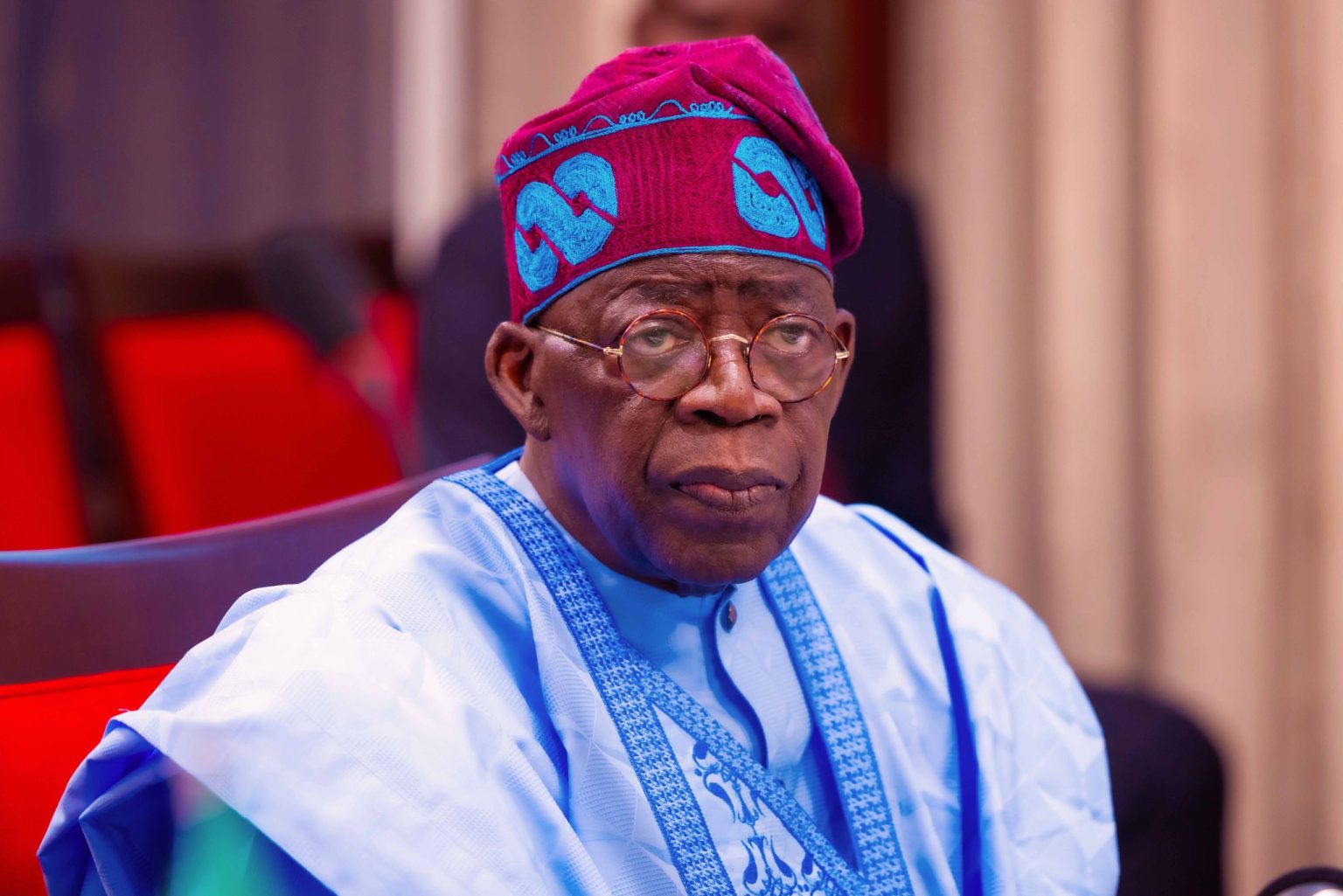
By Tunde Olusunle
Our ambassadors in the national parliament on Wednesday, December 18, 2024, spontaneously broke into a chant, serenading Bola Tinubu Nigeria’s President when he presented the 2025 draft budget to the bicameral body. On your mandate we shall stand gained ascendancy ahead of the 2022 presidential primary of the All Progressives Congress, (APC).
Today, it is probably at par with Nigeria’s national anthem in the circuit of the ruling political party.
Recall the viral video of the Minister for the Federal Capital Territory, (FCT), when he performed to the rhythm on one occasion of his visit to the office of the Chief of Staff to the President, Femi Gbajabiamila a few months ago. The reflex resort of the congressmen to the “mandate” tune on that occasion was in reaction to Tinubu’s joke at the presentation of the budget for 2025.The President had erroneously announced that he was presenting a draft expenditure proposal to the “11th” assembly! He was promptly reminded that we are still in the 10th assembly, in 2024. Tinubu quickly humoured that it could just as well mean that the entire parliament had been reelected for the 11th assembly which begins in 2027.
Tinubu’s budgetary presentation had to be staggered by 24 hours for undisclosed reasons. Reports after the Wednesday December 18 eventual outing, however, suggested that the executive arm of government needed the 24 hours between Tuesday December 17 and the eventual presentation, for very robust, backstage engagements with the legislature. There were feelers to the effect that Tinubu’s budget would be expressly shut down because of his recent propositions on tax reforms which has not gone down well with sections of the country and their representatives.
There are purported reports to the effect that while Members of the House of Representatives were advanced one billion naira each to augment the budgets for their “constituency projects,” Senators allegedly received a minimum of over 100 per cent more under the same nebulous heading. Such largesse should of necessity merit some singing.
While our parliamentarians decked in billowing robes and skyscraping headgears were clapping and caterwauling, giggling and guffawing that Wednesday December 18, 2024, deathly disaster struck in Ibadan, capital of Oyo State. The plan by a nongovernmental organisation led by Naomi Silekunola, a former wife of the Ooni of Ife, Adeyeye Enitan Ogunwusi which proposed to put smiles on the faces of a number of people this yuletide season, had gone awry.
Silekunola and her team intended to gift 5000 children below 13 years of age with a cash gift of N5000 each and offer each of them a food pack. There was a stampede at venue of the programme at Islamic High School, Bashorun District, Ibadan. Poor planning which precluded adequate security cordon, the absence of a standby medical team, among others, precipitated the death of 40 children. Many injured people are still hospitalised.
As though an angel of death was on a yuletide prowl, Okija in Anambra State was its next destination. A magnanimous well-to-do, Ernest Obiejesi, under the auspices of his Obi Jackson Foundation, availed the community of a rice consignment to be shared amongst the womenfolk in the morning of Saturday December 21, 2024, for the commemoration of Christmas. The raw ration came in 10 kilogramme bags of rice, out of which many people received just handfuls in bowls and cups. In the ensuing melee, 36 lives were lost, bodies littering the scene. Many limbs were bruised and broken, they are being patched up in various hospitals.
Despite popular assumptions that the streets of Abuja are paved with gold, the Okija tragedy was replicated, real-time, right at the very heart of Maitama, abode of the nouveau riche. Still in the spirit of the season, the Holy Trinity Catholic Church arranged to distribute food items to the less privileged as Christmas knocks on doors.
The Abuja Command of the Nigeria Police confirms that 13 people including four children died from the surging and trampling at the scene. Over a thousand people have been evacuated from the church, many of the wounded receiving medical attention at the proximal Maitama Hospital, just metres away from the church. Hunger for sure is a deconstructor of geography. Within four days in Nigeria this harmattan season, over 89 lives have lost while foraging for what to eat.
Instructively, a day before the Ibadan tragedy, loyalists and former aides of former President Muhammadu Buhari, flew to his hometown in Daura, to accord him an 82nd birthday surprise. Former Ogun State Governor, Ibikunle Amosun; Secretary to the Government of the Federation, (SGF), in Buhari’s regime, Mustapha Boss; Africa’s richest man, Aliko Dangote, all visited a man largely credited with plunging Nigeria into its seemingly irrecoverable abyss.
Femi Adesina, Buhari’s media minder also sang his boss’ praises on the occasion. He described him as ore mekunu, a friend of the poor, an ascription I found totally out of sync with the realities of his boss’s stewardship. Let’s hope Adesina is seeing on the streets, the hordes of Nigerians, instalmentally transmogrified into pitiable sub- mekunus by Buhari’s eight-year dysfunctional leadership. About 100 Nigerians perished in four day not because of a natural disaster, nor at the theatres of insurgency and military curtailment. They died looking for just that measure of rice to placate their growling stomachs. They died just hours and days after Buhari’s beatification by beneficiaries of his prodigal rulership.
Nigeria has been plunged into the worst economic situation in a whole generation, since the advent of the All Progressives Congress, (APC) at the centre. Poverty has never been as grim and piercing as we’ve witnessed beginning from Buhari’s coming in 2015. Poverty has been ruthlessly weaponised, the poor ready to dance to the drum of a currency note, even a scoop of peanuts. The indicators have determinedly and consistently pointed southwards these past decade.
Inflation is spiralling towards the 35 per cent mark, the unaffordability of basic food items driving mekunus to assured Golgotha in cross-country scrounging, scrambles and stampedes. The same way Nigerians hustle to scoop petroleum products when a tanker falls to the ground, is the same way they throw decorum through perimeters when they are being insulted with sachets of pasta in the name of “palliatives” and “stomach infrastructure.”
The Nigerian Bureau of Statistics, (NBS), is allegedly being bullied by the state to recant on its former announcement that N2.3 Trillion was paid out as ransom to bandits, criminals and kidnappers in the first 10 months of this year. The NBS which has belatedly announced that its systems were hacked, is in good company with the Independent National Electoral Commission, (INEC). INEC’s servers and terrestrial equipment are perennially compromised when election figures tend towards victory for the opposition.
The President recently hailed the peaceful and transparent conduct of the presidential election in Ghana, recommending it as a model for Nigeria. Sadly, it should be the other way round. Other countries should take inspiration from the way we conduct our affairs in Nigeria.
Nigeria prides itself as the giant of Africa. Many African countries look up to Nigeria for guidance, for leadership. Our exploits in the liberation of countries like South Africa from apartheid, and the restoration of peace and democracy to neighbouring Gambia, Guinea, Liberia and Sierra Leone, are well documented. We recently offset our outstanding dues to the Economic Community of West African States, (ECOWAS), totalling over N150Billion.
We do well at bragging and flexing our muscles, but fail where it matters the most. An essential characteristic of Ghanaian elections over the years, is the fact that the ruling party can be displaced by the opposition today. This allows the party so ousted to go re-strategise for the future. What do we do in Nigeria where election results are predetermined, where the electoral process is wholly corrupted, where true winners are intentionally dispossessed of their mandates and encouraged to seek redress in the judiciary? Didn’t a senior government official say in relation to Ghana’s exemplary election that a sitting government cannot be unseated in Nigeria? The stories of the backstage electoral thieveries anchored by INEC over the years will be told someday.
President Tinubu cancelled his official engagements for Saturday December 21, 2024, in honour of victims of the Ibadan, Okija and Abuja tragedies. Nigeria’s leadership must transcend the culinary indulgence and the merry-making occasioned by the yuletide to undertake very imperative introspection. There must be less dangerous, less dehumanising and less deathly avenues for lifting up the poor and indigent in our ranks.
The President is celebrated as some economic whiz kid. Enough of the demeaning, insulting and dubious handouts always purportedly passed on to the less-endowed by ways of very opaque “cash transfers” and the “lorry loads of palliatives.” Can someone please show me a register of transfers to my constituents back home in my community?
That scheme is wholly and totally a scam. Nigeria is not Somalia or Chad and similar countries ravaged by war and hunger, where the United Nations, (UN) and the Red Cross, drop dry rations from hovering helicopters into the hands of starving populations. Nigerians deserve a much, much better deal away from the most despairing status quo. Nigeria is too endowed to wilfully preside over the sustained pauperisation of its people.
Olusunle, PhD, Fellow of the Association of Nigerian Authors, (FANA), teaches Creative Writing at the University of Abuja.

